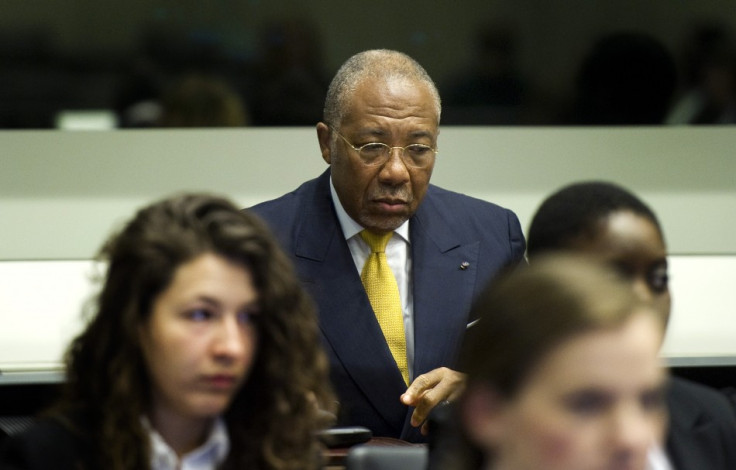Liberia's Charles Taylor Sentenced to 50 years for Sierra Leone War Crimes

Liberia's Charles Taylor has been sentenced to 50 years in jail for war crimes by the Special Court for Sierra Leone in The Hague.
"The trial chamber unanimously sentences you to a single term of imprisonment for 50 years on all counts," said Judge Richard Lussick.
"The accused has been found responsible for aiding and abetting some of the most heinous crimes in human history," said Lussick.
The former head of state insisted he was innocent and was likely to appeal against the sentence, a process that could last up to six months.
Earlier in May, the court's chief prosecutor Brenda Hollis asked for an 80-year sentence for 64-year-old.
His defence said that was excessive and meant he would spend the rest of his life behind bars.
The warlord was convicted for having used his role in advising and arming Sierra Leone's rebels who in return paid him in "blood diamonds" - gems mined by slave labour in rebel-controlled areas.
Taylor, who served as president of Liberia from 1997 until his resignation in August 2003, was convicted for advising and arming the Revolutionary United Front (RUF).
The rebel group and their alliance partners fought in Sierra Leone from the end of November 1996 - the date on which the Abuja accord peace agreement was signed - until 18 January, 2002, when the Sierra Leone Civil War was officially brought to an end.
The decade-long war led to the death of 120,000 people.
The RUF was led by warlord Foday Sankoh, who died in a Sierra Leonean prison cell while awaiting trial.
Trial marked by controversy
Taylor's trial has been marked by controversy. He accused the prosecution of paying witnesses. He also claimed western countries such as the US and the UK were behind his indictment.
Critics also criticised the court for not indicting former Libyan leader Muammar Gaddafi who died in 2011, despite clear indication he helped armed and train the RUF rebels.
Allegations of western conspiracy against Taylor were not helped by the court's first prosecutor, David Crane's claim the US and the UK were against such a move.
Crane told The Times: "It was my political sense, dealing with senior leadership in the UK, US, Canada, UN, and the Netherlands, that this [indicting Gaddafi] would not be welcome. This [Gaddafi's involvement] is not speculation on my part. We named and shamed him in the actual indictment"
Also, even though Taylor was found guilty on 11 counts of aiding and abetting crimes committed during the Sierra Leonean civil war, the court acquitted him of the most serious charges of "joint criminal enterprise, "command and control", "instigating" and "ordering" the crimes.
To add to the controversy, Justice el Hadj Malik Sow of Senegal, the alternative judge, dissented from the guilty verdict handed down by the court.
"I have my dissenting opinion and I disagree with the findings and conclusions of the other judges, because for me under any mode of liability, under any accepted standards of proof, the guilt of the accused from the evidence provided in this trial is not proved beyond doubt by the prosecution," he said.
"And my only worry is that the whole system is not consistent with all the principles we know and love, and the system is not consistent with the values of international criminal justice."
© Copyright IBTimes 2024. All rights reserved.





